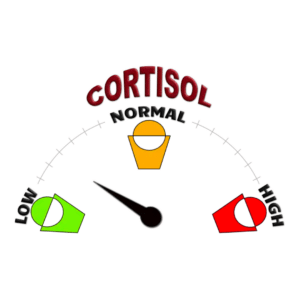Many doctors, patients and other professionals are becoming increasingly frustrated by the lack of progress in pharmaceuticals with reducing food-related illnesses such as type 2 diabetes and heart disease. The result of this is that food is starting to become of increased focus. A growing body of research is supporting the notion that if people eat healthily, they are likely to stay healthier and prevent the chronic illnesses that are plaguing the world.

There is ample evidence that nutritional strategies can reduce mortality, morbidity, human suffering and medical costs1. The difficulty for medical professionals is that prescribing healthy eating is not as simple as prescribing a pill. Knowing instinctively that food can impact health is one thing, but having the knowledge and expertise to give nutritional or dietary advice is another. Research suggests that most practicing doctors lack the knowledge to do so2.
Several studies investigating the situation of nutrition education in the medical curriculum have found that both practicing doctors and medical students are reporting inadequate nutrition education during medical school3. With mainstream medicine over the past 50 years oblivious to the role that diet plays in alleviating and preventing ill health, it was obvious that individuals who felt their existing way of eating was causing their health issues would experiment with their own elimination diets and look for guidance elsewhere.

The dilemma facing people wanting to eat healthily without appropriate nutritional guidance is that the abundance of dietary information available on different forums creates confusion. Social media use is ever-increasing as wellness bloggers become health ‘influencers’ without nutritional qualifications, offering inspiring messages of hope – “eat this way to look like me and be healthy again” – and encouraging people with health problems to follow whichever elimination diet and health influencer is most appealing.
The fact that most people, including some health professionals, are unclear as to what makes up a healthy diet, is not surprising. Even the scientific literature can be complicated and contradictory4. It is no surprise that many people end up ignoring even the most basic common-sense advice.

The College of Medicine in London was formed to come to the rescue and “change the conversation about health”. It advocates a collaborative approach towards healthcare involving different healthcare professionals. Last month I attended its “Food on Prescription” conference, which saw leaders in food, lifestyle and medicine talking about how to create a healthier future for communities, patients and the nation.
Questions posed to medical professionals were whether they know which foods to recommend to patients with different health issues, and how to advise them to stay healthy. Speakers included Professor Tim Spector, Professor of Genetic Epidemiology and Director of the Twins UK Registry at Kings College, and author of “The Diet Myth”, consultant cardiologist Dr Aseem Malhotra and author of “The Pioppi Diet” and Dr David Unwin, GP and RCGP National Champion for Collaborative Care and Support Planning in Obesity and Diabetes.

Dr Aseem Malhotra advocates a dietary pattern based on the Pioppi diet for longevity and health. It is named after the small town of Pioppi in Southern Italy, where locals live for 10 years longer than average (with the average life expectancy close to 90 for men and women and many people living healthily over 100), and don’t seem to suffer the chronic illnesses that plague the rest of the world.
The core principles of the diet involve:
- Avoiding bread, pasta, rice and added sugars, including fruit juices, honey and smoothies
- Avoiding industrial seed oils, such as sunflower oil
- Avoiding snacking
- Eating 2 to 4 tablespoons of extra virgin olive oil a day and a small handful of nuts
- Not fearing healthy fats
- Eating lots of whole fruit, vegetables and oily fish
- Enjoying a glass of wine with meals as they do in the Mediterranean (not binge drinking)
- Walking at least 30 minutes a day and not sitting for longer than 45 minutes at a time (even getting up for 2 minutes and stretching is beneficial to health)
- Fasting once a week
- Sleeping at least 7 hours a night
- Reducing stress through breathing exercises

Dr David Unwin firmly believes that a low carbohydrate diet helps in the management and prevention of Type 2 diabetes. First and foremost, however, he advocates that patients must make informed decisions about their treatment and care with their health professionals.
The low carbohydrate diet focusses on:
- Restricting refined carbohydrates and sugars
- Eating real foods
- Avoiding snacking
- Eating healthy fats such as meat, fish, full-fat dairy, eggs, nuts, avocados, olives, and olive oil
- Avoiding processed foods
- Avoiding alcohol
- Avoiding sweeteners
- Avoiding sugary fruits such as tropical fruits and eating berries, apples and pears
- Eating as many green vegetables and salads as you can

Professor Tim Spector emphasises the importance of a diverse gut microbiota in health. His UK registry of 12,000 twins is one of the richest collections of genotype/phenotype information on twins worldwide. According to his research, cultivating a varied colony of gut microbes may be more beneficial towards achieving optimal health than following traditional dietary trends.
He maintains that dieters should be given personalised nutrition plans based on their unique bacterial profiles, since people will react differently to foods depending on the microbes in their gut.
According to his research, microbial diversity is achieved by eating a variety of fermented and real foods. The more diverse our microbes are, the healthier we will be. For him, the key to being thinner, healthier and happier is to:
- Focus on fibre
- Eat 20 to 30 different types of plant foods a week (which includes herbs, spices, seeds, wholegrains and nuts)
- Avoid processed foods and artificial sweeteners
- Eat fermented foods such as yoghurt, kefir and kombucha
- Eat real foods focussing on the polyphenol content (compounds in plant foods that act like prebiotics)
- Adopt a personalised approach to nutrition and remember there is no ‘one size fits all’ approach.

For me, the common underlying theme of the conference and the take home message is to eat real food, and lots of fibre, and not to aim for dietary perfection because there seems to be no such thing. My words of guidance are to remember that small changes in diet can have a substantial beneficial impact.
If you believe you can’t be healthy unless you become vegan and eat only plant food, or paleo and eat mainly meat, or keto and predominantly fat, you are missing the point.
There are huge benefits in taking small steps, such as raising your vegetable and fruit intake from zero portions a day to just two or three, cutting out processed foods, reducing sugar intake and eating foods that look as close to possible as they do in their natural form. If you believe it’s all or nothing, you – along with most people – will throw up your arms in despair, ignoring even this most basic common-sense advice, and our health crisis will continue.
References:
- St Jeor ST, Krenkel JA, Plodkowski RA, Veach TL, Tolles RL, Kimmel JM “Medical nutrition: a comprehensive school-wide curriculum review” American Journal of Clinical Nutrition, 2006 83(4)
- “Are medical educators following General Medical Council guidelines on obesity education: if not, why not?” Chisholm A, Mann K, Peters S, BMC Med Educ 2013 13:53
- Crowley J, Ball L, Dan D, Arroll B, Leveritt M, New Zealand WC. Medical students have positive attitudes and moderate confidence in providing nutrition care: a cross-sectional survey, J Biomed Educ 2014
- “A nutrition strategy to reduce the burden of diet-related disease: access to dietician services must complement population health approaches” Segal L, Opie R Frontiers in pharmacology 2015: 6 160.








